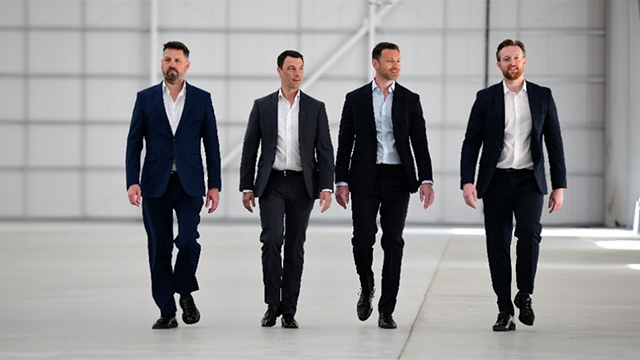It is now over one-and-a-half years since the European Court of Justice (ECJ) handed down its decision in Customs & Excise Commissioners v Mirror Group plc (C409/98) (now known as Trinity Mirror plc). The case considered whether payment made by a landlord to an incoming tenant as an inducement to take up a new lease was subject to VAT. The tenant challenged Customs’ view that the landlord’s payment made was a quid pro quo for a standard-rated supply by the tenant to the landlord.
The ECJ held that if a tenant had made a supply to the landlord, it could not be an exempt supply because it did not fall within the exemption for the leasing or letting of immoveable property contained in Article 13B(b) of the EC Sixth VAT Directive. The ECJ then went on to suggest that, in some cases, a tenant might not be making a supply at all, while in other cases – where the tenant was doing something more than simply accepting the grant of a new lease – the tenant would be making a standard-rated supply. As an example, the ECJ suggested that if the tenant were acting as an anchor tenant, this would be akin to a standard-rated supply of “advertising”.
In January 2003, the High Court, in applying the reasoning of the ECJ to the specific facts in Mirror Group, dismissed the taxpayer’s appeal, holding that the tenant had indeed made a standard-rated supply of services to the landlord.
Since the ECJ’s decision, some uncertainty has arisen as to the correct VAT treatment to be applied to inducement payments made on the grant of a new lease. Strictly, on the basis of this decision, the question that needs to be asked is: has the tenant done something over and above the mere acceptance of the grant of a new lease? If the answer is “no”, VAT ought not to be payable. However, although Customs has not, until now, published its views, it has been known to take a very restrictive view of the ECJ’s decision and has continued to apply the same policy on inducements as prevailed before it was given.
Customs has now confirmed this view in a recently issued Business Brief. It states: “Customs’ view is that the normal commercial reality of such transactions [ie inducements] means that there will be a supply of services where, in return for a payment made to him, a prospective tenant affords the advantage of agreeing to be bound by the obligation that he has to fulfil.” In essence, Customs’ view is that, contrary to what the ECJ has suggested, simply agreeing to accept the grant of a lease is a supply of services.
It seems clear from this that if the view of Customs is to change it will once again have to be challenged in the courts again. In practice, a tenant should ensure that he charges VAT on any inducement payment that he receives. As long as the landlord has opted to tax the property, the landlord will be able to recover the VAT charged as input tax. The difficulty arises where the landlord has not opted to tax, so that if the tenant charges VAT the landlord will be unable to recover it as input tax. Where this is the case, consideration should be given to whether the inducement could be structured differently; for example, instead of an inducement payment, the tenant could be given an equivalent rent-free period. Alternatively, in a case where the facts are favourable to a tenant and where the amount at stake is significant, the tenant might, with the assistance of the landlord, challenge Customs in the courts.
Mike Boutell, CMS Cameron McKenna
Related items:
It is now over one-and-a-half years since the European Court of Justice (ECJ) handed down its decision in Customs & Excise Commissioners v Mirror Group plc (C409/98) (now known as Trinity Mirror plc). The case considered whether payment made by a landlord to an incoming tenant as an inducement to take up a new lease was subject to VAT. The tenant challenged Customs’ view that the landlord’s payment made was a quid pro quo for a standard-rated supply by the tenant to the landlord.
The ECJ held that if a tenant had made a supply to the landlord, it could not be an exempt supply because it did not fall within the exemption for the leasing or letting of immoveable property contained in Article 13B(b) of the EC Sixth VAT Directive. The ECJ then went on to suggest that, in some cases, a tenant might not be making a supply at all, while in other cases – where the tenant was doing something more than simply accepting the grant of a new lease – the tenant would be making a standard-rated supply. As an example, the ECJ suggested that if the tenant were acting as an anchor tenant, this would be akin to a standard-rated supply of “advertising”.
In January 2003, the High Court, in applying the reasoning of the ECJ to the specific facts in Mirror Group, dismissed the taxpayer’s appeal, holding that the tenant had indeed made a standard-rated supply of services to the landlord.
Since the ECJ’s decision, some uncertainty has arisen as to the correct VAT treatment to be applied to inducement payments made on the grant of a new lease. Strictly, on the basis of this decision, the question that needs to be asked is: has the tenant done something over and above the mere acceptance of the grant of a new lease? If the answer is “no”, VAT ought not to be payable. However, although Customs has not, until now, published its views, it has been known to take a very restrictive view of the ECJ’s decision and has continued to apply the same policy on inducements as prevailed before it was given.
Customs has now confirmed this view in a recently issued Business Brief. It states: “Customs’ view is that the normal commercial reality of such transactions [ie inducements] means that there will be a supply of services where, in return for a payment made to him, a prospective tenant affords the advantage of agreeing to be bound by the obligation that he has to fulfil.” In essence, Customs’ view is that, contrary to what the ECJ has suggested, simply agreeing to accept the grant of a lease is a supply of services.
It seems clear from this that if the view of Customs is to change it will once again have to be challenged in the courts again. In practice, a tenant should ensure that he charges VAT on any inducement payment that he receives. As long as the landlord has opted to tax the property, the landlord will be able to recover the VAT charged as input tax. The difficulty arises where the landlord has not opted to tax, so that if the tenant charges VAT the landlord will be unable to recover it as input tax. Where this is the case, consideration should be given to whether the inducement could be structured differently; for example, instead of an inducement payment, the tenant could be given an equivalent rent-free period. Alternatively, in a case where the facts are favourable to a tenant and where the amount at stake is significant, the tenant might, with the assistance of the landlord, challenge Customs in the courts.
Mike Boutell, CMS Cameron McKenna
Related items:
PP 2002/26










